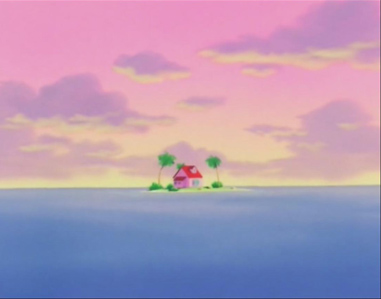Out to Sea

Let’s say you’re floating in the middle of the sea, all by yourself. You’re paddling vigorously to stay afloat but it’s such a constant part of your life that you’re used to it, and your muscles haven’t really fatigued yet.
Occasionally another person comes floating by and you notice that they’re struggling just as hard to stay afloat. The two of you start talking about how much it sucks to struggle like this, and how life doesn’t make any sense. You both agree that life is extremely painful, and seems pointless, and you wish there were some kind of purpose, or there was less suffering involved. Yet at the end of the conversation neither of your lives have improved at all, you’re just more aware of how it’s not like you want.
That person then leaves, time goes by, and another shows up. You greet him and talk about how much life sucked for the other guy, and this new person agrees that it’s about the same for him. At the end of the conversation neither of your lives have improved, at all. He leaves.
A third person comes by, struggling and in intense pain. They appear very old and weary. You ask what’s wrong and they tell you their life story about how they’ve been floating for decades, and now their body is old and gray. As they finish their story they start to fall under the water’s surface, unable to keep up the effort. You help them stay afloat for a bit longer, and eventually you part once again.
You say to yourself, “I wish there was a way out. I want to get out!”
You somehow manage to float over to a rock that is jutting out of the sea floor, a small island in many ways. You’ve never really seen a rock like this before, and you’re not sure what to make of it. You start talking to it about how life is so bitter, and the rock doesn’t respond. You get angry with the rock, and hit it. The rock still doesn’t respond. Eventually you realize that the rock isn’t moving, it’s stuck there, solid, and when you touch it and hold on, you manage to stop floating as wildly. You get the idea to sit on the rock, and in doing so you pull yourself out of the water for the first time in your life.
Relief! You’re no longer floating…. You’re centered, on this rock, this foundation. The waves are still there, and you still get splashed occasionally, but life no longer seems so painful, and from on the higher position of the rock you can see other people in the sea, floating around aimlessly.
You wave to a few of the people to come over, and they see you. Some think it’s not real, and shrug it off as an illusion. They don’t believe that something like that could possibly exist, and so they continue to float around. Others swim over immediately and grab onto the rock. With a shake, the rock expands a little bit, and makes room for the new person that has joined you. Where you’re sitting rises up a tiny bit, and you’re now at an even higher level.
From your new perspective you see even more people floating aimlessly out to sea.
the hard part is finding your rock with a master roshi like figure there to teach you……
That’s true, although there are two phrases that come to mind from Chinese culture.
"When the student is ready, the master will appear."
"When the wish to cultivate is in your heart, it shakes the world of ten directions."
They both imply that it starts with us.
Hi Derek,
I think you might want to mention who this particular quote is from,"When the wish to cultivate is in your heart, it shakes the world of ten directions."
since you used it…I read it in Zhuan Falun, a book on true cultivation not anime and Shifu Li asked that we reference his name or the book if we use a direct quote
thanks
Okay, that is where I got it from, and I’m happy to cite Master Li as the source.
But in case you didn’t know, Master Li was actually quoting a traditional Buddhist phrase, which I would imagine is common throughout all of Chinese Buddhism, and that’s why it is relatable to the audience he’s speaking to.
Just to mention it while I am at this; I also took what you said here literally Derek. That is all for now. Cheers.
Haha. Okay, then. Every word spoken and every deed done, has both internal and external characteristics, just as each human has both Buddha Nature and Demon Nature. There is wisdom to be found in both.
Love. The “charitas” version, not the “eros” version. Or, as you may like to say in the oriental tradition, “compassion” (karuna).
At leats, its the answer that works for me.
Regards, Herb.